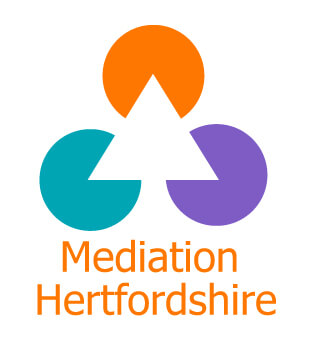
Norway is a successful example of a nationwide community mediation service, which is open to all residents of the Country for free. The service, called Konfliktradet, is funded by the Norwegian Ministry of Justice and Security and is a ‘top-down initiative’ that commenced nationwide in the 1980s. Victoria Harris, CEO of Mediation Herts and author of the Report “Transforming Community Conflict”, discussed the benefits of such a service with Karen Kristin Paus, from Secretariat Konfliktradet.
The Service has 130 employees who work in a variety of roles to include as caseworkers and individuals who support recruitment and training for mediators. There are also staff working on research and evaluation, which currently includes a project looking at the impact of online dispute resolution.
Konfliktradet has 550 community mediators, which based on a population of 5.5 million and equates to one mediator for every 10,000 people.
There are 12 regional offices supporting 22 separate locations so to ensure that this centrally funded service can be delivered locally.
Mediators have no specific educational or professional background and are recruited from across Norway to support their local communities. Karen instructed that this approach is designed to help the mediator group reflect its community as well as to encourage diversity and inclusion within the mediation profession. Karen went on to explain that the key requirement at interview is ‘interpersonal skills’ and that both individual and group interviews are carried out to help recruit people who can demonstrate the necessary aptitude for the role.
Konfliktradet then deliver mediation training to mediators who have successfully been interviewed and the training comprises of a 4-day training schedule, followed by observations which are then followed by a further 3 days training. Continuing Professional Development is also provided and mediators have a maximum 4-year tenure, although can apply to be re-appointed.
A modest hourly rate of 140 Norwegian krone (which equates to approximately £12 an hour) is paid to the community mediators. Originally the service was provided solely by volunteer mediators, but this has changed and Karen shared that the current fee is also under review, mainly to enable people with less affluent circumstances to become involved in the delivery of the service.
The Service provides not just mediation, but also restorative practice designed to support victims in the criminal justice system. Its caseload also includes neighbour disputes as well as family and money disputes and it seeks to promote community safety and individual wellbeing as well as to support both the civil and criminal court systems.
All Norwegian residents can access the service for free, providing accessibility to mediation and restorative practice. Raising public awareness of the service is also undertaken from the budget provided by the Ministry of Justice and Security.
While speaking about how we are living in discordant times, Karen was prompted to report that ‘circle work’ with wider groups on divisive issues in communities is also now being carried out in addition to traditional mediation and restorative practice.
When asked about the motivation for this top-down initiative and the reasons why the Service had sustained and developed since the 1980’s, Karen reflected upon how the work of Konfliktradet had always been valued as way of preventing conflict and the many benefits that follow from that.
Perhaps now is the time to pilot such an initiative in the UK to support happier, healthier and safer communities and in doing so to support the systems of health, housing and community safety that serve them. Click here to read the Mediation Herts Report ‘Transforming Community Conflict’ in full and to take at look at all twelve recommendations.

